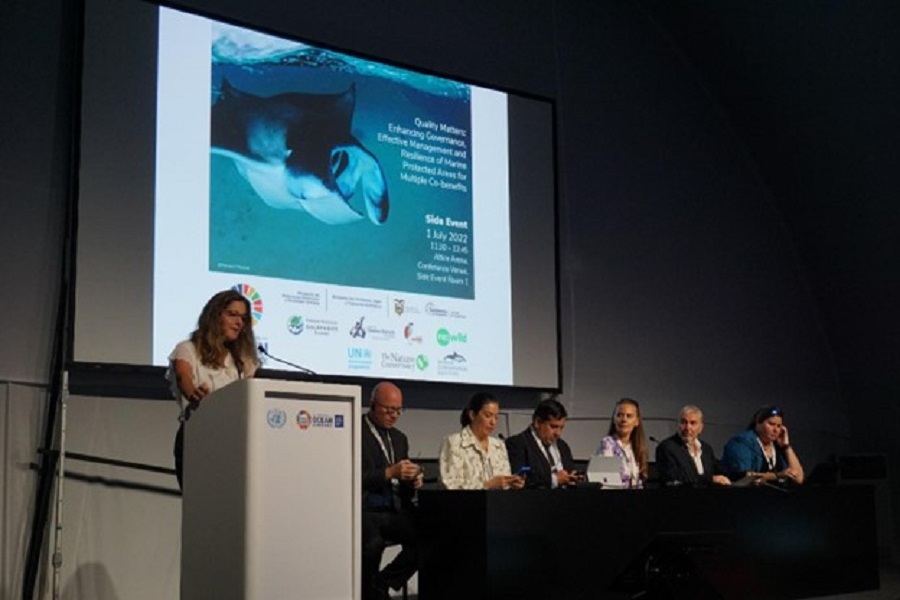Subscribe to our Telegram channel to get a daily dose of business and lifestyle news from NHA – News Hub Asia!
The United Nations Ocean Conference 2022 took place from June 27 to July 1, in Lisbon, Portugal, and brought together more than 5,000 participants, including world leaders, entrepreneurs, youth, influencers, and scientists. The conference aimed to facilitate these stakeholders in finding science-driven innovations and solutions to respond to a multidimensional ocean crisis driven by climate change, overfishing, habitat loss, and pollution.
The Nature Conservancy (TNC), with support from Mary Kay Inc., held an event in collaboration with United Nations Environment Programme (UNEP), the Government of Ecuador, the Jocotoco Foundation, the Charles Darwin Foundation for the Galapagos Islands, Re:wild, and the Marine Conservation Institute.
TNC and UNEP moderated the event, highlighting the critical importance of ensuring quality Marine Protected Areas (MPAs) by enhancing governance, effective management, and climate resilience and the significant roles that communities, NGOs, governments, philanthropy, the private sector, and cross-sector collaborations play in effective MPAs.
The event stood out at the conference, as it emphasized the need to improve the management of existing areas, instead of promoting the establishment of new protection. As currently fewer than 3% of MPAs are effectively managed, the efficacy of these protective measures is essential to capitalize on their potential for both conservation and livelihoods.
Dr. Lizzie Mcleod of TNC noted, “Effective management is foundational to achieving 30×30 commitments—a campaign to protect 30 percent of the world’s ocean by 2030. With support from Mary Kay, TNC, UNEP, and other partners, we are developing tools for marine managers to improve marine management, support sustainable financing, and guide marine habitat restoration. By leveraging innovation, new technologies, and global best practices, marine managers will be better able to tackle major threats facing our oceans.”
“MPAs are key to ocean health and sustainable development. But they are not always effective without a range of support. Decision support tools that enable improved MPA design and management, knowledge sharing, and collaboration are needed to give marine stakeholders the support they need to better protect the oceans,” said Ole Vestergaard, Programme Officer in the Marine, Coastal & Freshwater Ecosystems Branch of Division for Environmental Policy Implementation at UNEP.
“Mary Kay’s founder, Mary Kay Ash, believed that there are three types of people in this world: those who make things happen, those who watch things happen, and those who wonder what happened,” said Deborah Gibbins, Chief Operating Officer at Mary Kay. “We’re honored to join forces with the first type of people to develop the tools and resources needed to protect our oceans for generations to come.”
If we are to protect and restore ocean and coastal ecosystem services and revitalize ocean systems and secure our current livelihoods and humanity’s future, we must improve the effectiveness of marine protected areas in achieving their conservation and sustainability goals in parallel to accelerating MPA coverage.
Source: Mary Kay Inc.


